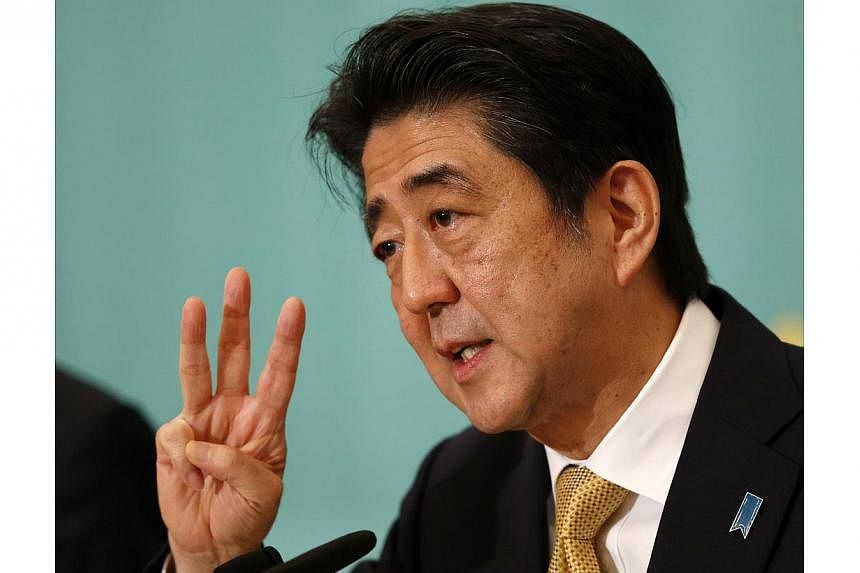TOKYO - Japanese politicians or their proxies rushed to register themselves as candidates for the upcoming general election as nomination centres opened on Tuesday morning throughout the country.
A total of 475 seats in the Lower House will be up for grabs in the Dec 14 election.
Of the total, 295 seats will be contested in single-seat constituencies and the remaining 180 through proportional representation.
Altogether, 1,193 candidates are expected to run in the election, 961 of them in single seat constituencies, and 232 only for proportional representation seats. Many candidates for single-seat constituencies are also expected to be registered in their parties' proportional representation slates.
The Liberal Democratic Party (LDP), Japan's largest party, are fielding 283 candidates and its coalition partner the Komeito, nine, for a total of 292 candidates in single-seat constituencies. The two parties are also fielding candidates for the proportional representation seats.
Prime Minister Shinzo Abe is suspected of calling the snap election in an attempt to give himself another four years in office. The election was technically not due until December 2016.
Mr Abe is hoping to get a fresh mandate from Japanese voters for his so-called "Abenomics" economic growth policies.
The election is not expected to result in a change of government.
A minimum of 238 seats is needed for a simple majority.
Together the LDP and the Komejto hope to get more than 266 seats, which is an absolute majority as it will allow them to chair all parliamentary committees in the Lower House.
Meanwhile, the largest opposition party, the Democratic Party of Japan (DPJ), has managed to field only 178 candidates for single-seat wards, far less than it did in the 2012 elections.
Several smaller opposition parties are also in the race. However, in 197 constituencies, the DPJ has agreed with other opposition parties to field only one candidate among them so as not to split the anti-coalition vote.
The exception is the Japanese Communist Party which insists as usual on fielding candidates in all 295 single-seat wards.
Though the LDP is expected to remain in power, the party may lose some seats.
The election comes at a time when public approval for Mr Abe has slipped to its lowest since he took power in Dec 2012.
The economy has also failed to rebound even more than eight months after the sales tax was raised from 5 to 8 per cent in April. Personal consumption, which accounts for about 60 per cent of Japan's gross domestic product, remains depressed.

